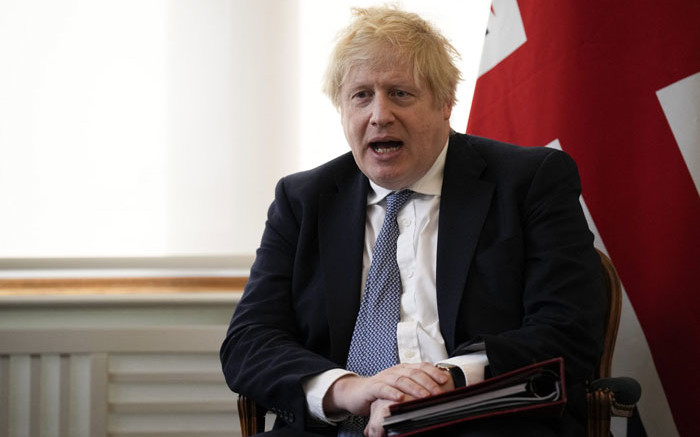
In a surprising setback for the government, the House of Commons National Assembly passed a motion to reject the controversial immigration bill without even debating it.
France’s President Emmanuel Macron speaks before presenting the insignia of Commander of the Legion of Honor to Marie-Claude Tjibaou during a ceremony on July 24, 2023 in Noumea. Image: AFP
PARIS, France (AP) — France’s parliament on Monday rejected a key immigration bill from President Emmanuel Macron’s government, prompting his top interior minister to offer his resignation over its “failure.”
Macron rejected Interior Minister Gerald Darmanin’s offer to resign, instead ordering him to find new ways to break the impasse and push through legislation.
In a surprising setback for the government, the House of Commons National Assembly passed a motion to reject the controversial immigration bill without even debating it.
Prime Minister Elisabeth Borne was scheduled to hold an emergency meeting with several ministers and lawmakers on Monday evening.
After talks at the presidential Elysee Palace, Macron rejected Darmanin’s offer of resignation and asked him to “make proposals to move forward by overcoming this deadlock and obtaining an effective law,” said a presidential official who asked not to be named to be called.
Originally proposed by Macron’s centrist government with a mix of steps to expel more undocumented people and improve migrant integration, the bill’s text is clearly aimed at enforcement after its passage by the right-wing-controlled Senate.
In his speech to the National Assembly, Darmanin defended the bill, which further restricts migrants’ ability to bring family members to France, birthright citizenship and social benefits.
He called on MPs not to vote together on the Greens’ rejection proposal.
Despite his pleas, the National Assembly supported the motion to reject the bill by a vote of 270 to 265.
‘FAIL’
The move means a pause in the review of around 2,600 proposed changes to the law.
The bill could now be sent back to the Senate, or the government could decide to withdraw the text.
“It’s obviously a failure,” Darmanin told TV channel TF1. “I want to give the police, the gendarmes, the prefects and the judges the tools to take action against irregular immigration.”
He denounced what he called an “unholy alliance” of the left and the far right to reject the law.
But far-right figurehead Marine Le Pen said she was “delighted” with the result, saying it had “protected the French from a traveling tidal wave.”
“It feels like the end of the road for his law and therefore for him,” said far-left leader Jean-Luc Mélenchon on X (formerly Twitter) about Darmanin.
On Sunday, Macron said restricting the right to asylum was a mistake as he spoke during a ceremony marking the 75th anniversary of the Universal Declaration of Human Rights.
“France maintains its long tradition of providing asylum to all whose rights are threatened in their own country, and we will continue to defend this right to asylum,” he said.
“BILL OF SHAME”
The bill aims to speed up asylum application processes and regulate the status of undocumented workers in industries with labor shortages, but also to facilitate the expulsion of foreigners deemed dangerous.
It would impose an annual quota on the number of migrant arrivals to be set by Parliament and eliminate medical care for undocumented people except in emergencies.
Earlier in the day, around 200 people, including undocumented workers, demonstrated in front of the Palais Bourbon in Paris, home to the National Assembly.
“We have gathered to denounce this disgrace that calls into question the fundamental principles of our republic,” Sophie Binet, leader of the radical left-wing union CGT, said at the rally.
She also denounced the “hypocrisy” of the regularizations, saying: “France could not function without undocumented workers in kitchens, cleaning and construction.”
The passage of the bill in the lower house is far from certain as neither side has a majority.
It is unlikely to pass in any form without the support of the conservative Republicans (LR) in the National Assembly.
The standoff has increased speculation that the government will again opt to use Article 49.3 of the constitution, which allows it to pass laws without a vote, as it did on controversial pension reforms earlier this year.
However, the government wants to avoid swinging this widely unpopular constitutional hammer, which could also trigger a vote of no confidence.






Recent Comments